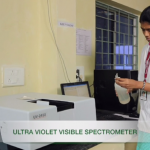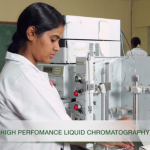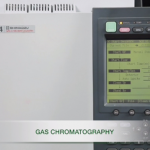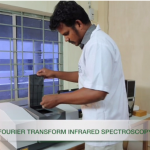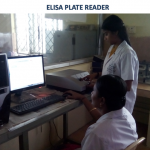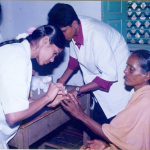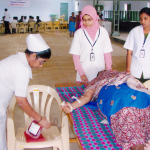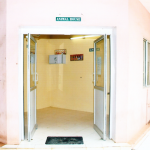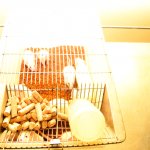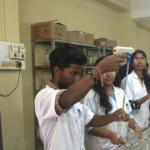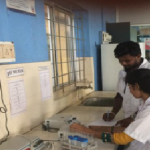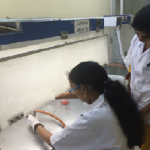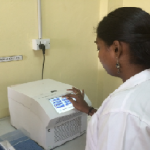The department of Biochemistry was established in the year 2008. The main objective of the department is to provide deep insight into the fundamental concepts in biochemistry and to equip students with biological knowledge enabling them to explore a wide range of opportunities in biological fields. Our undergraduate programme is uniquely framed with balanced theoretical and practical courses following CBCS. Our postgraduate programme is aimed at equipping skills in different experiments to address specific problems. This would cater to the needs of clinical laboratory, industrial requirements and entrepreneurship.
The Department has well equipped undergraduation, postgraduation and Research labs with sophisticated instruments such as Inverted Microscope, Fluorescent Microscope, Fluorimeter, UV Spectrophotometer, Microplate reader, Lyophiliser, Rotary Evaporator, chemi-doc etc.
In addition, we have a well-established Animal House Facility approved by CPCSEA with a functioning IAEC. The facility houses different rodent models for training and research purposes. We have conducted ICMR/KAHE funded workshops in animal handling. To maintain a pathogen free environment for immunocompromised strains, we have Individual Ventilated Cages (IVC). The department also hosts animal tissue culture laboratory (ATC) with state-of-the-art facilities such as biosafety cabinet, CO2 incubator, inverted phase-contrast microscope, deep-freezer, liquid nitrogen containers to study the cell-based research objectives. The department routinely conducts guest lectures, seminars, conferences and workshops funded by DBT, DST, TNSCST, ICMR and INSA.
All the faculties hold PhD degree in diverse fields of biochemistry with good experience in teaching and research. Our students are placed in reputed institutions/organizations to pursue advanced training/career. The department encourages students to take part in sports, extracurricular and extension activities. The department has so far completed 5 major research projects funded by ICMR, UGC, DST and 3 minor research projects funded by UGC and KAHE.
The research findings of the faculty members and students have been published in reputed international journals. At present the department has published more than 200 research articles. The major thrust area of research includes Diabetes, Cancer Biology, Phytomedicine, Nanomedicine and Computational Biology.
Vision
- To provide scientific research at the highest international standard, integrating cutting-edge multidisciplinary approaches to solving significant problems in biology and medicine.
- Motivate students to develop as internationally competitive professionals with excellent leadership, communication with teamwork skills.
Mission
- To provide a high quality education and learning experience for our undergraduate and postgraduate students through.
- The innovative teaching methods and emphasis on the development of critical thinking and problem-solving skills.
- The provision of an inspiring, exciting and collaborative scientific environment.
- Building a rich collegial atmosphere that will equip our graduates with transferable skills and an awareness of research ethics.
- To provide opportunities for career development for both students and staff.
- To contribute the public to lead better life through extension activities.
- To translate our discoveries into meaningful applications for better healthcare and economic development of nation.


